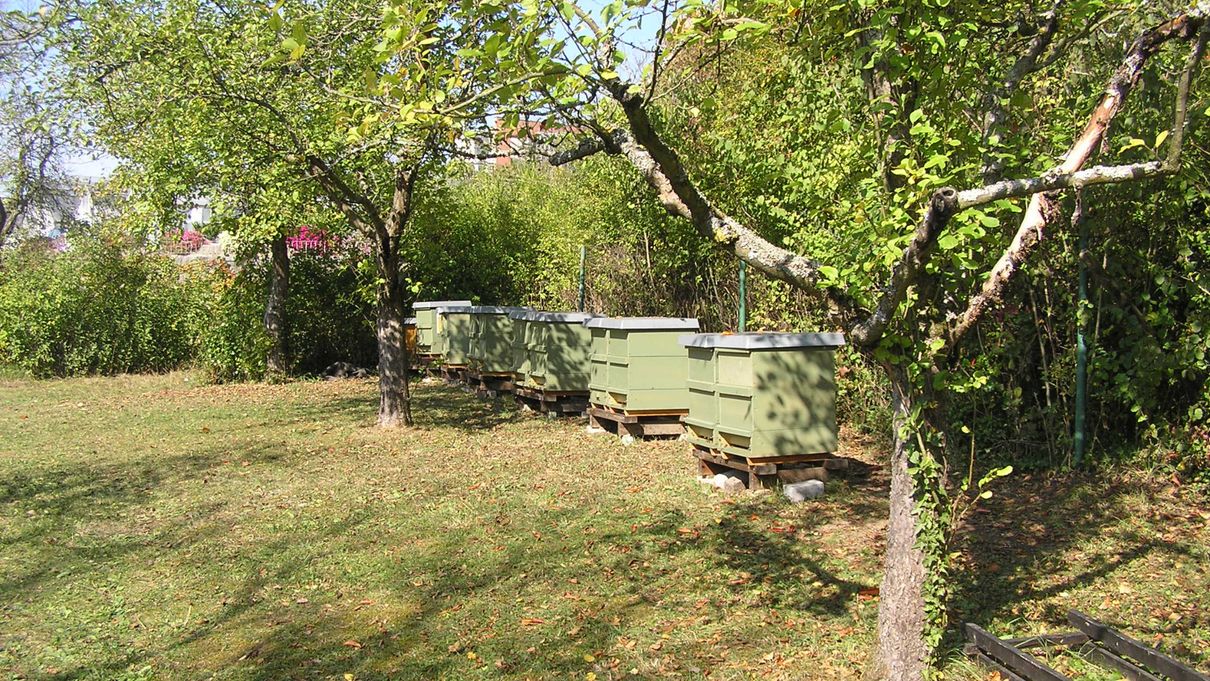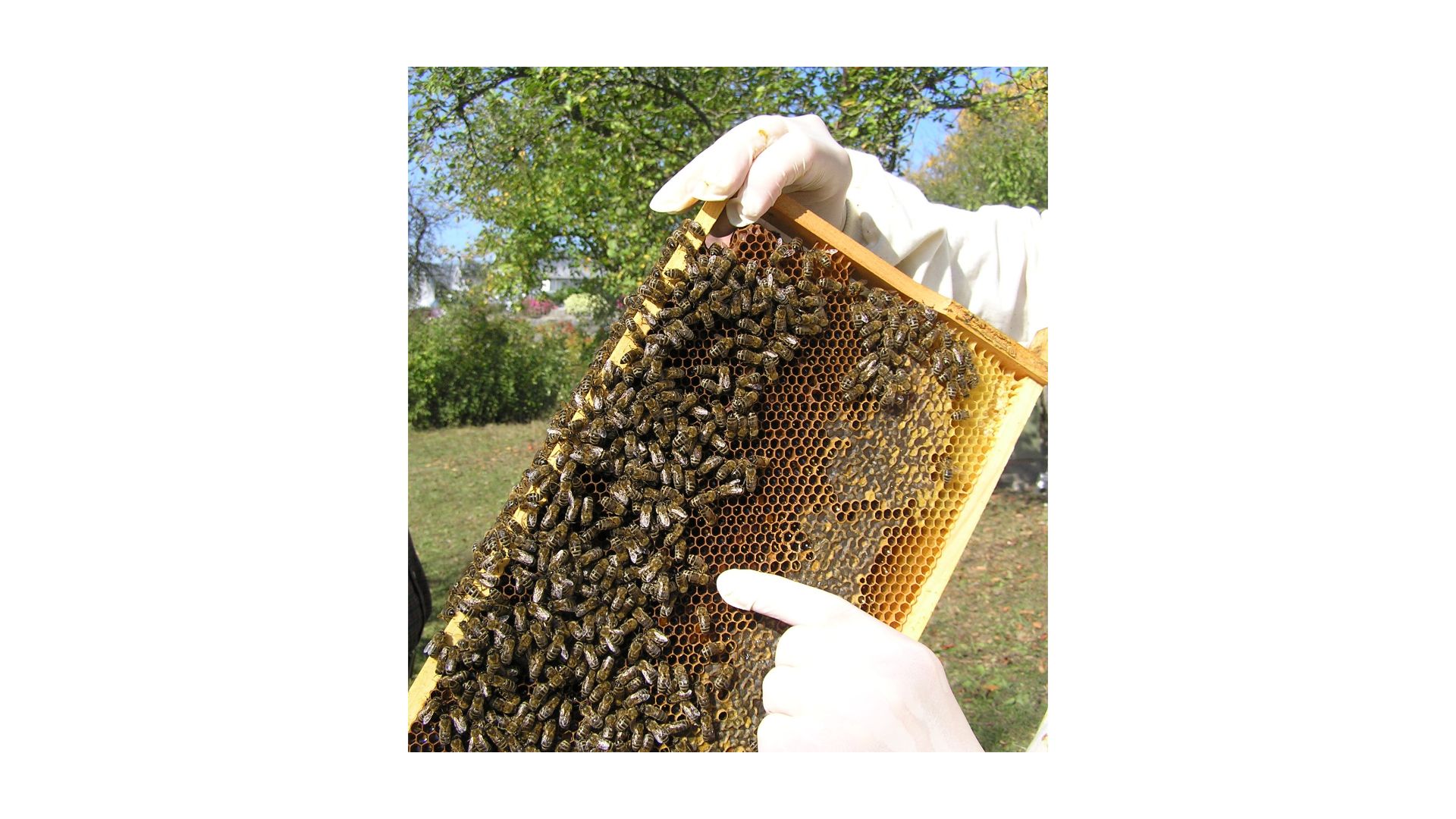Top Bar Beehives at Schools

The project
Beekeeping in what is known as a “Top Bar hive”, a simplified form of the vertically stacked hives that are in common use today, is combined with the interesting design of school gardens for bees and other pollinating insects.
Top Bar beekeeping facilitates beekeeping without the need for many materials and a large amount of space. All that is required are a Top Bar box, a location where it can stand and the most simple materials for harvesting honey (bucket + cheesecloth) and handling the colony (protective clothing, smoker and hive tool). Equipment like that used in conventional beekeeping, such as honey extractors, strainers and spinning and storage room, is not required. As a result of this, it is possible to set up study groups for beekeeping in schools, even with limited financial resources and space.
The simple box structure, in which the bees are only provided with bars for constructing the honeycombs, makes it possible to observe nest construction and the organization of the bee colony in its natural form.
With special training material in the form of presentations and a manual created by the Bee Research Center, beekeeping is taught by trained teachers (seminar programs for teachers).
The completed training material facilitates access to the honey bee teaching unit. The schools receive support through the state specialist advice of the Bee Research Center.
In collaboration with the LWG Abteilung Landespflege/Gartenbau (Department of Land Conservation and Horticulture), the Bee Research Center drafts plans for bee gardens for schools, which are constructed in modules, so that individual modules can be adapted to the particular requirements of the existing school gardens.

Implementation
Ten schools are included in the project. Each school has been sent a working set consisting of three Top Bar beehives and colonies plus the necessary equipment for beekeeping including 10 protective suits and plant seeds for creating the school garden.
The project has been successfully completed.